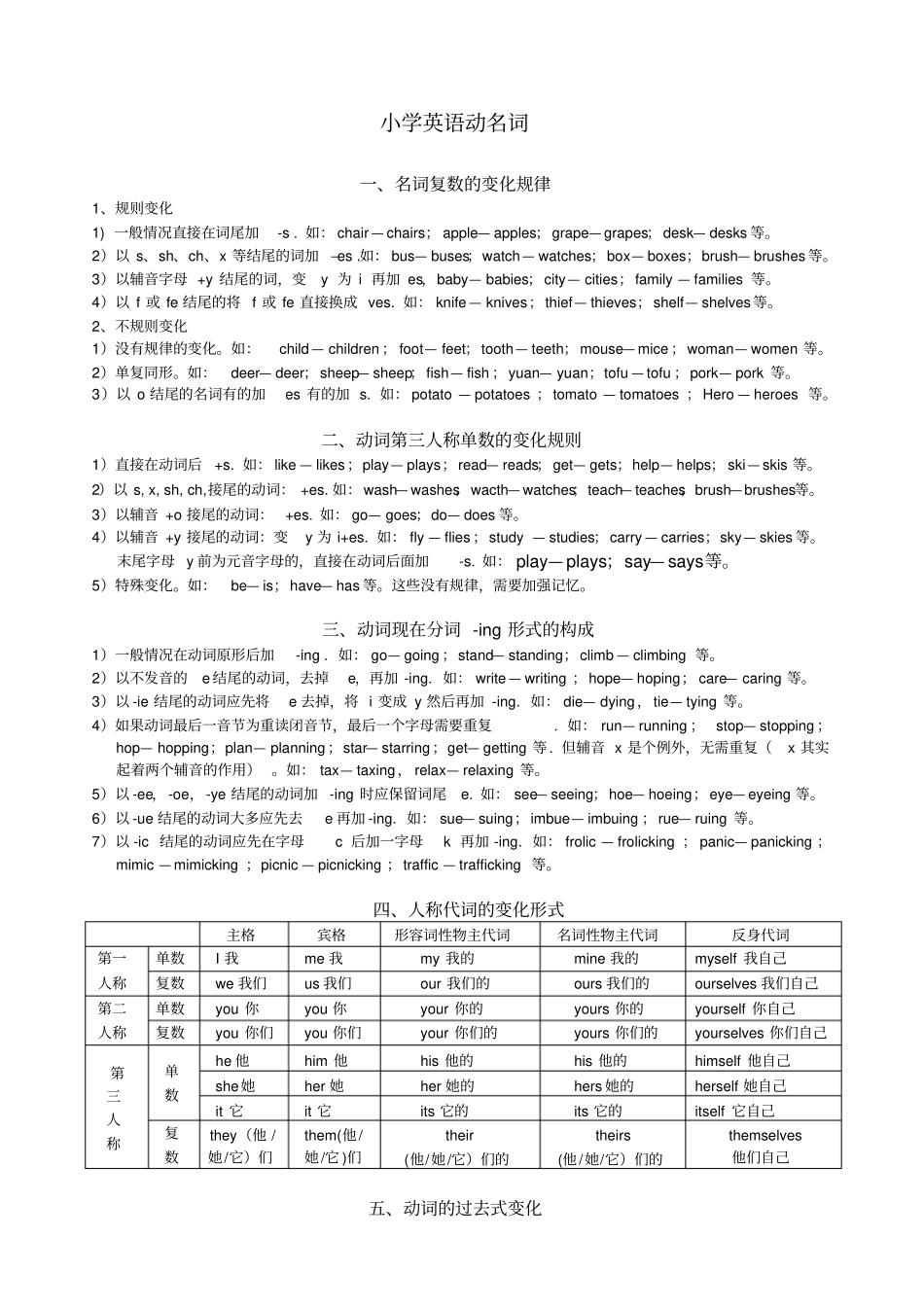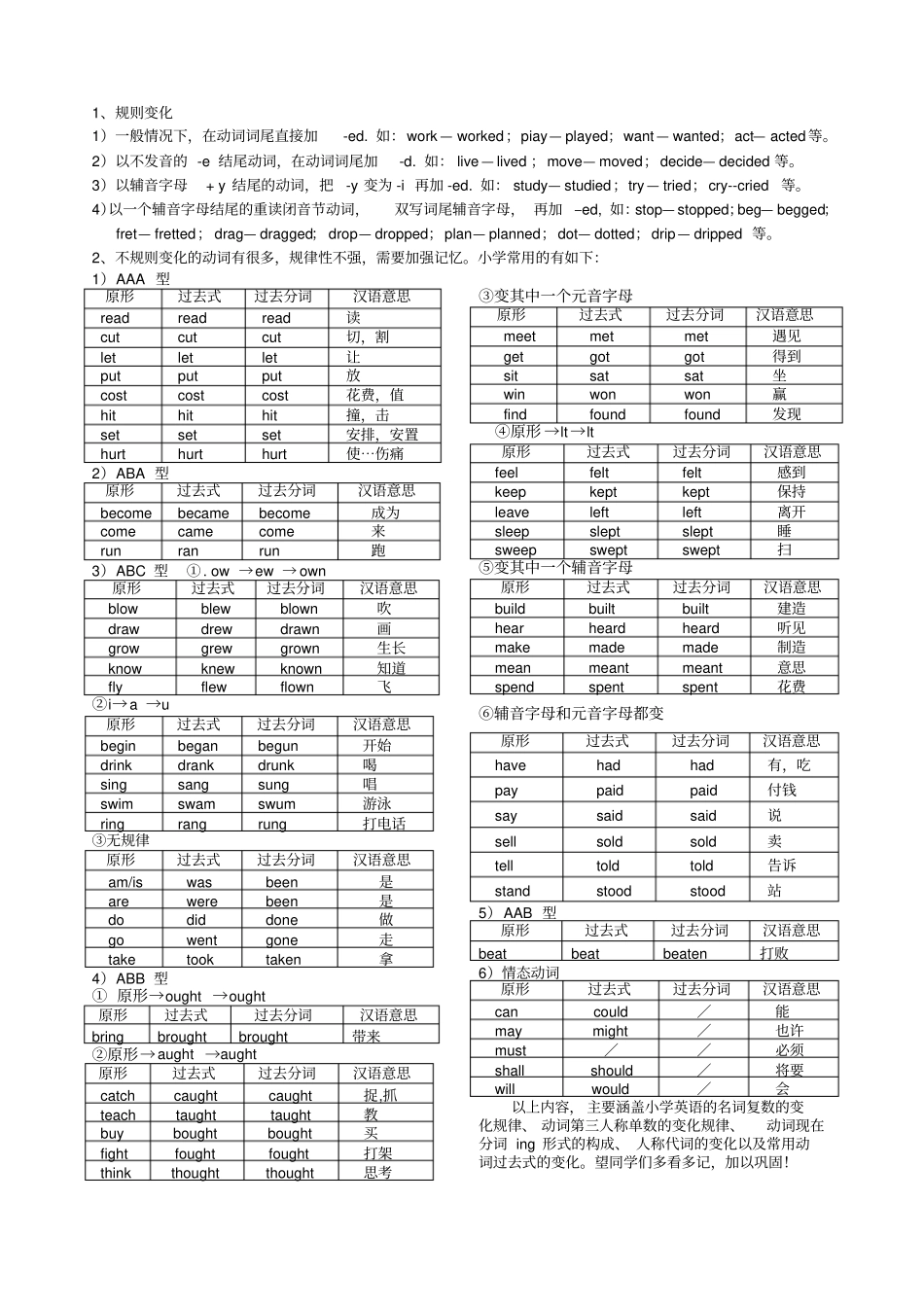小学英语动名词一、名词复数的变化规律1、规则变化1) 一般情况直接在词尾加-s . 如: chair — chairs; apple— apples;grape— grapes;desk— desks 等。2)以 s、sh、ch、x 等结尾的词加 –es .如: bus— buses;watch— watches;box— boxes;brush— brushes 等。3)以辅音字母 +y 结尾的词,变y 为 i 再加 es,baby— babies;city— cities;family — families 等。4)以 f 或 fe 结尾的将 f 或 fe 直接换成 ves. 如: knife — knives;thief— thieves;shelf— shelves等。2、不规则变化1)没有规律的变化。如:child— children ; foot— feet;tooth— teeth;mouse— mice ;woman— women 等。2)单复同形。如:deer— deer;sheep— sheep;fish— fish ;yuan— yuan;tofu — tofu ;pork— pork 等。3)以 o 结尾的名词有的加es 有的加 s. 如: potato — potatoes ;tomato — tomatoes ;Hero — heroes 等。二、动词第三人称单数的变化规则1)直接在动词后+s. 如: like — likes;play— plays;read— reads;get— gets;help— helps; ski— skis 等。2)以 s, x, sh, ch, 接尾的动词: +es. 如:wash— washes;wacth— watches;teach— teaches;brush—brushes等。3)以辅音 +o 接尾的动词: +es. 如: go— goes;do— does 等。4)以辅音 +y 接尾的动词:变y 为 i+es. 如: fly — flies ;study — studies;carry — carries;sky— skies 等。末尾字母 y 前为元音字母的,直接在动词后面加-s. 如: play— plays;say— says等。5)特殊变化。如:be— is;have— has 等。这些没有规律,需要加强记忆。三、动词现在分词 -ing 形式的构成1)一般情况在动词原形后加-ing . 如: go— going ;stand— standing;climb — climbing 等。2)以不发音的e 结尾的动词,去掉e,再加 -ing. 如: write — writing ;hope— hoping; care— caring 等。3)以 -ie 结尾的动词应先将e 去掉,将 i 变成 y 然后再加 -ing. 如: die— dying,tie— tying 等。4)如果动词最后一音节为重读闭音节,最后一个字母需要重复. 如: run— running ; stop— stopping ;hop— hopping;plan— planning ;star— starring;get—...

